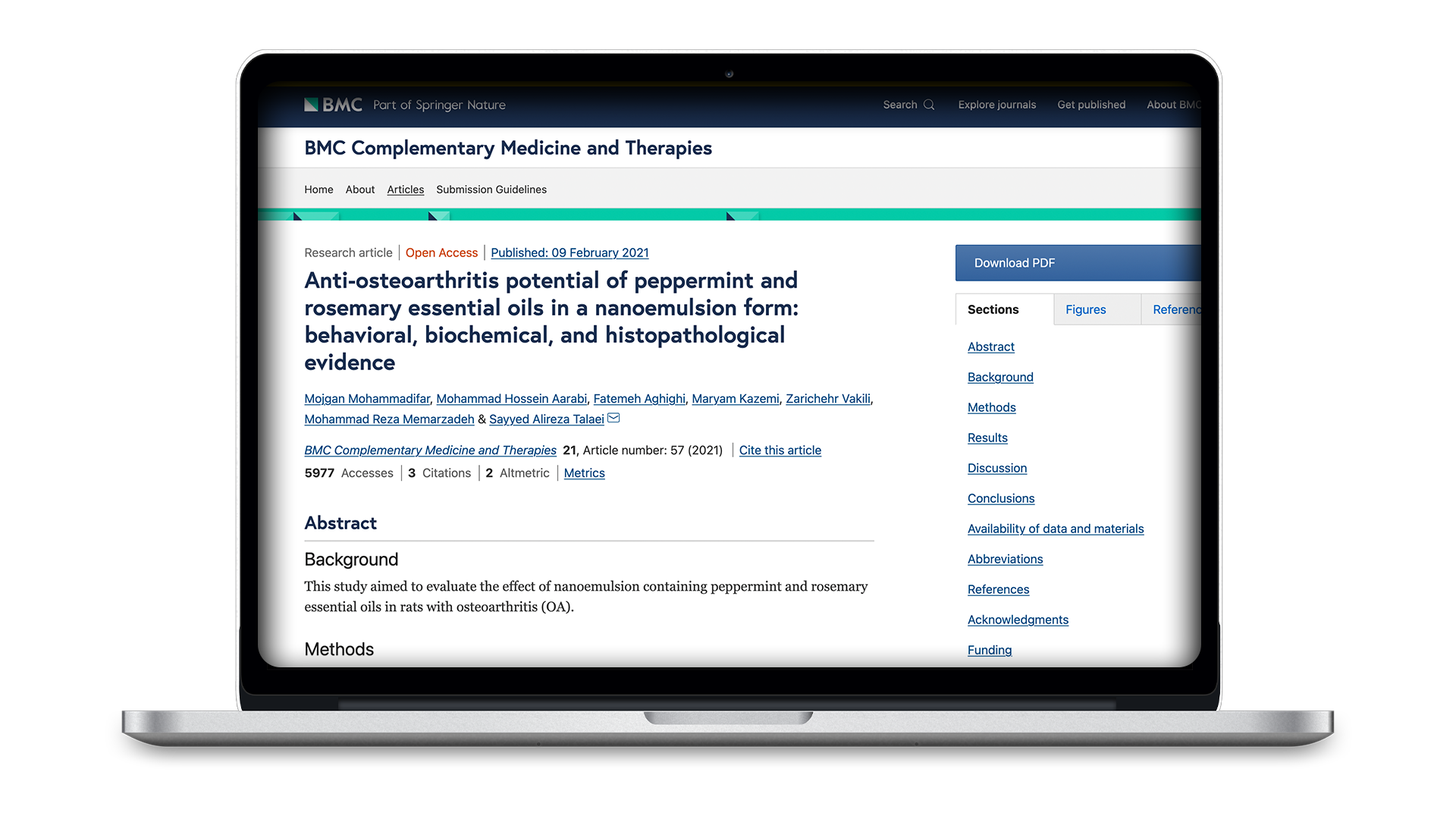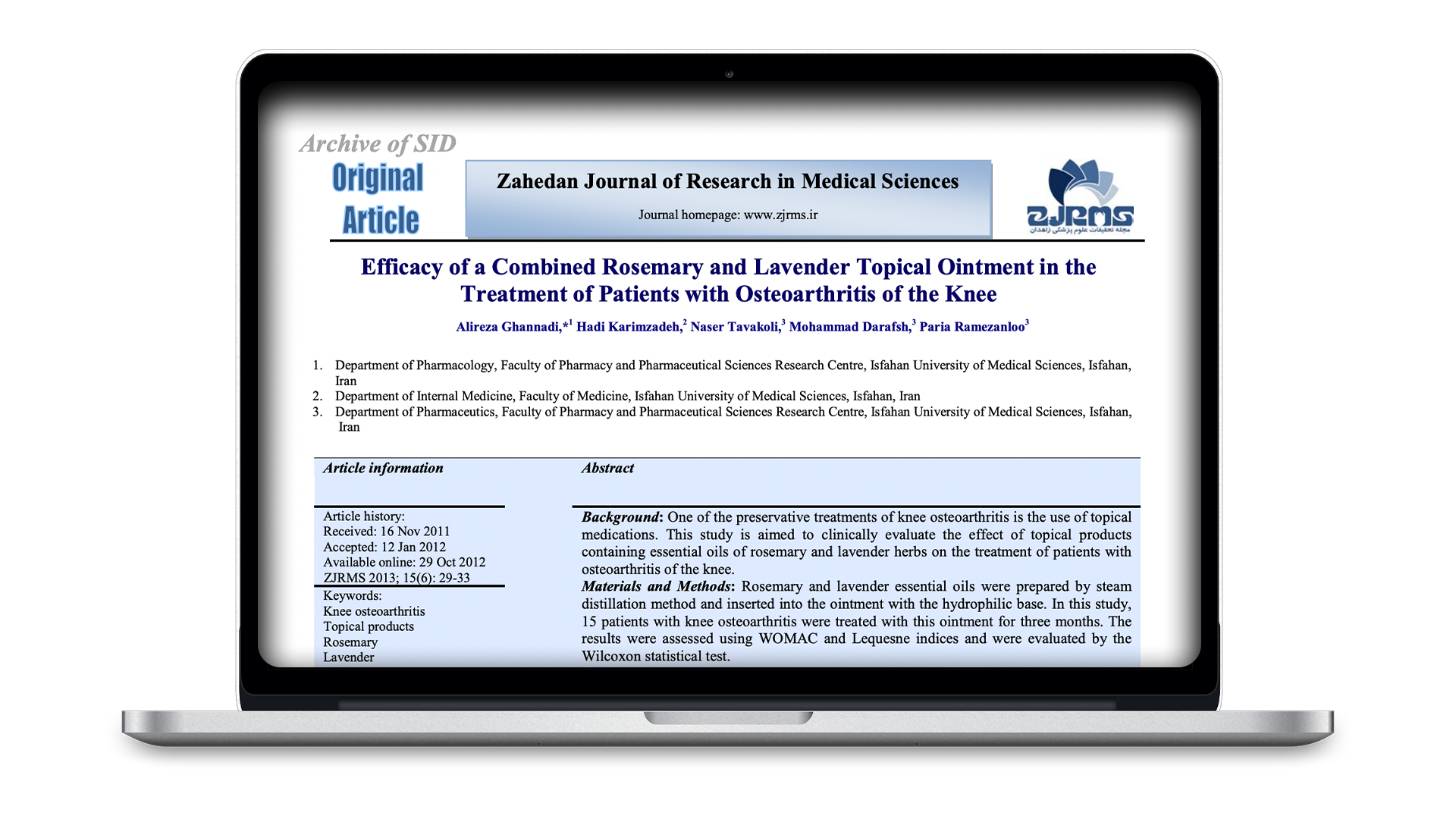Clinical Studies
MegRelief uses the power of nutmeg and other natural ingredients to give providers and consumers an all-natural joint and muscle pain relief solution that’s backed by science.
The Resolution of Chronic Forearm Pain with MegRelief, Therapy, and Lifestyle Modification

This report is being done to show that MegRelief, an all-natural oil, is effective at relieving pain. The central question examined: “Is there an effective, all-natural pain reliever that can be used as an effective alternative to over-the-counter pain medication and opioids?” This report shows an affirmative when MegRelief is paired with therapeutic exercise, lifestyle modification, and education. Some limitations of this report are that participants did not track their pain scores and the results cannot be generalized to a larger population.
Nutmeg Oil Alleviates Chronic Inflammatory Pain through Inhibition of COX-2 Expression and Substance P Release in vivo

Utilizing nutmeg oil in a 2016 study, researchers concluded that nutmeg oil provided a safe, fast-acting, and reliable treatment option for issues of chronic pain and inflammation. Using the appropriate topical application for joint swelling treatment, it was concluded that nutmeg oil proved a valuable method in significantly reducing joint pain and swelling by inhibiting COX-2 expression and blood substance P levels with minimal to no side effects.
Comparison of the Effect of Topical Application of Rosemary and Menthol for Musculoskeletal Pain in Hemodialysis Patients

This study focuses on the verification of the effects of natural medicinal ingredients (in this case rosemary and menthol/peppermint) on the inflammation and pain reported by OA patients. With respect to rosemary’s history as a chronic pain treatment and peppermint as an anti-inflammatory, the study provided support that topical application of the ingredients is a viable treatment option. The mean patient pain score had a significant difference from before application compared to after (p=0.83 to p=0.001).
Anti-Osteoarthritis Potential of Peppermint and Rosemary Essential Oils in a Nanoemulsion Form: Behavioral, Biochemical, and Histopathological Evidence

In this experimental study, a nanoemulsion of peppermint and rosemary was used on rats to observe dermal toxicity. Over the course of 14 days and utilizing 6 groups of rats: Control (saline injection into the knee), osteoarthritis (intra-articular injection of 2 mg monosodium iodoacetate), and four groups of OA treated with nanoemulsion gel, nanoemulsion solution, rosemary, and peppermint essential oil gel, or diclofenac sodium. Treatments were administered topically at a dose of 1 ml daily. No dermal irritation or hematological issues were observed.
Topical Therapies for Knee Osteoarthritis

The study seeks to analyze the effectiveness of topical treatments in managing OA pain and inflammation. Researchers have concluded that topical NSAID application for OA management may be preferable to oral ingestion since it reduces the possibility of side effects and presents itself as a possible first-line treatment. Caution is advised when administering topical NSAIDs to those with a history of NSAID complications.
Topical Therapies for Osteoarthritis

This study observes the efficacy of topically applied NSAIDs as a treatment for OA, as well as recommended prescription methods. While there is support for topical NSAIDs for OA pain, topical NSAIDs can still have harmful side effects if used incorrectly. However, there is shown greater tolerance and safety for topical NSAIDs compared to oral. Topical NSAIDs could be considered for patients with mild to moderate pain.
